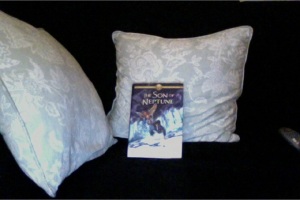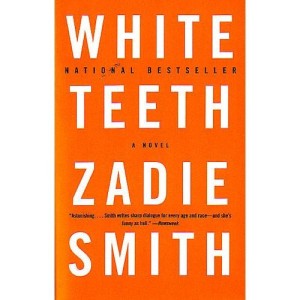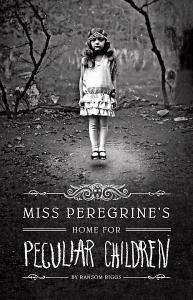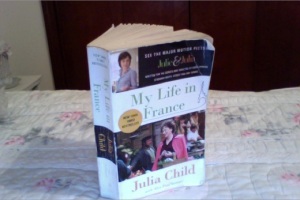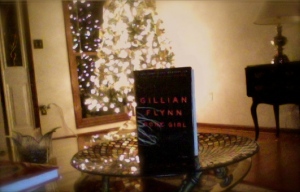It’s been awhile. A LONG while. This is because of two reasons. The first is my fault but the second isn’t. I got busy with packing for school, moving in to my new apartment (which I LOVE by the way), and then of course actually going to school. It’s been a crazy few weeks but I’m back in the routine of a full class schedule at IU now. The second reason why things have been at a standstill blog-wise recently is because it took almost TWO AND A HALF WEEKS for my roommate and I to get internet access in our apartment. PS: I hate you, Comcast. So before about a week ago, even when I had time to post I couldn’t post because of the various technical difficulties that were going on around here. None of that matters though; let’s play catch-up!
I’ve read five books since I last posted (that’s right, I’m behind on posting but I NEVER stop reading) and they’re kind of a mixed bag as far as genre, style, and how I feel about them. Sadly, one of them is back at home so my mom can read it, but the other four books are hanging out here in Bloomington with me. Let’s go through in the order in which I read them.
 First, I read Jonathan Franzen’s novel Freedom. It’s a long one and even though I read it a while ago I’m still not completely sure how I feel about it. The premise is that a Midwest family, the Berglunds, are middle-class and liberal. Patty and Walter are the parents and they have two children who are teenagers when the plot begins, one boy and one girl. The story jumps back and forward in time from the couple’s college years to the present. Patty has an affair with Walter’s best friend Richard, and the fallout from the discovery threatens to totally tear the family apart. Walter works at various environmental pursuits, and Patty is a homemaker who was a basketball star in college. Somehow, this story manages to both focus in on the Berglund family in an almost microscopic way while still making plenty of assertions about modern society. I liked what Franzen was saying about family and America, but I didn’t much like his characters. None of them were especially likeable but they were definitely interesting. There’s a slump in the middle that I felt like I was never get through but in the end I think Franzen is successful in providing an exploration and a portrait of today’s family.
First, I read Jonathan Franzen’s novel Freedom. It’s a long one and even though I read it a while ago I’m still not completely sure how I feel about it. The premise is that a Midwest family, the Berglunds, are middle-class and liberal. Patty and Walter are the parents and they have two children who are teenagers when the plot begins, one boy and one girl. The story jumps back and forward in time from the couple’s college years to the present. Patty has an affair with Walter’s best friend Richard, and the fallout from the discovery threatens to totally tear the family apart. Walter works at various environmental pursuits, and Patty is a homemaker who was a basketball star in college. Somehow, this story manages to both focus in on the Berglund family in an almost microscopic way while still making plenty of assertions about modern society. I liked what Franzen was saying about family and America, but I didn’t much like his characters. None of them were especially likeable but they were definitely interesting. There’s a slump in the middle that I felt like I was never get through but in the end I think Franzen is successful in providing an exploration and a portrait of today’s family.
Next I read The Cookbook Collector by Allegra Goodman, and it was fantastic. It’s not pictured in the photo above because my mom’s at home enjoying it as we speak. I loved it. It has received a lot of press for being loosely based on the characters and plot of Sense and Sensibility by Jane Austen, but I don’t think it’s immediately apparent unless you know the Austen story quite well (which I do). The writing was gorgeous and rich, the characters were totally developed and fascinating, and the subject matter itself was incredibly interesting. Two sisters, Emily and Jessamine Bach, live very different lives in California. Emily is the CEO of a successful start-up tech company in the Silicon Valley during the late 90s, and Jess is a philosophy student at Berkeley who works in a rare book shop. The two sisters are foils for one another, which shouldn’t come as a surprise if you’ve read Austen’s book. It’s one of my new favorites and I’d highly recommend it to anyone who loves books, has a sister, is living a post-college life or remembers what it’s like to live a post-college life, or anyone who has a family. Its topics are varied, from unexpected love to family loss to religion to cooking, and I loved every page.
Now for something completely different. I’ve continued on with the A Song of Ice and Fire series by George R. R. Martin and I’m proud to say that I made it over the hump that is the fourth novel in the series, A Feast For Crows. A lot of Martin fans have trouble with this book because many of the characters that have been central to the plot thus far in the series are markedly absent from Feast. I too was a little put-off at first, but as I went through the book I started to become just as attached to and interested by the new characters that Martin introduced as I am by the old. He apparently tried to write Feast and the next novel, A Dance With Dragons, into one massive tome, but instead decided to split them up into two still-massive-but-less-so complete novels. I can see the logic in this as far as money goes for his publishing house, but I also think Martin was correct in deciding that he needed some new blood (figuratively and literally) in the plot of his epic. He brings in new characters to build suspense, flesh out the plot events more fully, and to gain a more wide perspective on life in Westeros and the surrounding countries. I think it’s a genius move. Of course I got a bit bored by some of the storylines at times, but honestly that happens to me with his other works sometimes too. The new characters are as completely developed as the old and I think that’s an essential part of introducing new perspectives this far into a series. One of the best parts about Feast is that you get to read from the perspective of Cersei Lannister, and let me tell you that it is fascinating and wholly disturbing. The book was fantastic; don’t mind the haters.
After A Feast For Crows I switched gears again and read another Tana French novel, Faithful Place. Even though I always get a little annoyed by the kitchy “cop” language of her books, the plots of the crime novels are so great that I can’t quit them. Plus they take place in Dublin and now that I’ve been there I love the connections I can make to memories I have of that beautiful city. Faithful Place is told from the perspective of Frank Mackey, who was a supporting character in The Likeness, which I’ve written about here previously. The plot centers around Frank’s old neighborhood, Faithful Place. Frank left as a young adult because he couldn’t stand his family and also because the love of his life, Rosie Daly, left him on the night they had planned to run away to London together. He’s never seen Rosie or heard from her again, but one night years later he gets a call from his estranged family back in Faithful Place and the past he’s been trying to avoid comes rushing back to him. Rosie’s suitcase from the night of their planned elopement has been found near their chosen meeting place, due to construction in the area. All of a sudden the story of Frank’s life completely changes: Rosie had planned to meet him after all, and someone didn’t give her the chance. Upon investigating the murder (Frank works for the Dublin Murder Squad), he finds Rosie’s body and from there the novel escalates into a full-blown investigation and detective story. Frank’s heartbreak and pain are staggering and completely come through in French’s writing. Life in pre-millennium Ireland is portrayed in a bleak but totally accurate way as well, and I spent at least four nights staying up until 4AM because I couldn’t sleep before finding out what the next big revelation or clue would be. It’s really great; French knows how to write crime novels with a strong, human, emotional aspect.
Finally, I recently finished Olive Kitteridge by Elizabeth Strout. If you think back a couple of years you’ll remember that I reviewed Amy and Isabelle, which is also by Strout. It was a bit too girly for me but I recognized that Strout wrote a female-based novel in an intelligent, non-pandering way that I liked. Olive Kitteridge is much better than Amy and Isabelle, if you ask me. It is sort of a collection of short stories that all have one character in common: Olive Kitteridge, the namesake of the novel. Almost all of the book takes place in the small town of Crosby, Maine, and just as before I was struck by Strout’s elegant writing style. She handles the most diverse types of events in the lives of drastically different characters with ease and clarity; I was never confused about who characters were and I always felt connected to their lives and struggles. The main character, Olive, is feisty and insecure, brash and wounded, hilarious and sad. In other words, she’s very real. In a way that’s similar to Maeve Binchy, an author that I love and who recently passed away, Strout is able to focus on one town that could be seen as mundane, but relates the lives of characters in such a way that it makes you understand that no town is “boring,” because people are living their lives there. No life is boring, no matter how insignificant and small it seems from the outside. This book is so well done; I’d highly recommend it.
Overall, the books I’ve read during the end of my summer and the start of my last year of school (at least for awhile) have made me excited to read more books. I have an Amazon and Half-Price addiction and my book shelves are bursting at the seams, but I can’t wait to read more books and yes, write more blog posts. I promise this every time after I’ve taken a bit of a break, but things will be more regular from now on. As always, thanks for reading (both my blog and books, of course)!
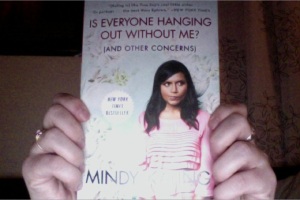 Kaling does many things well in this book. First, she makes herself extremely accessible to her audience, which is primarily quirky(ish) young(ish) women. She relates her misadventures and mistakes as a way to establish commonality with the reader and invest the reader in her from the start. Second, Kaling is smart. Each story or essay in the novel is exactly as long as it needs to be to maximize both humor and the plot of each episode itself. Her intelligence also elevates the humor she specializes in as a storyteller. Though pop culture references appear on almost every page, so do references to literature and history. Kaling has a Dartmouth degree, so this shouldn’t be surprising. Finally, she blends self-deprecation and confidence in a way that made me simultaneously respect her and feel that she was a “real girl.” She talks candidly about both her successes and her failures, from the time she stormed out of her job for a petty reason to when she co-wrote a critically acclaimed play.
Kaling does many things well in this book. First, she makes herself extremely accessible to her audience, which is primarily quirky(ish) young(ish) women. She relates her misadventures and mistakes as a way to establish commonality with the reader and invest the reader in her from the start. Second, Kaling is smart. Each story or essay in the novel is exactly as long as it needs to be to maximize both humor and the plot of each episode itself. Her intelligence also elevates the humor she specializes in as a storyteller. Though pop culture references appear on almost every page, so do references to literature and history. Kaling has a Dartmouth degree, so this shouldn’t be surprising. Finally, she blends self-deprecation and confidence in a way that made me simultaneously respect her and feel that she was a “real girl.” She talks candidly about both her successes and her failures, from the time she stormed out of her job for a petty reason to when she co-wrote a critically acclaimed play.
